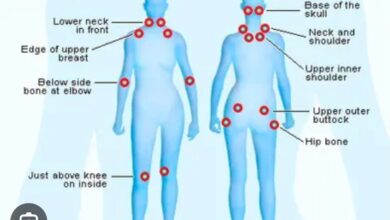PREGNANCY, TYLENOL, AND AUTISM

The number of cases autism spectrum disorder and Attention Deficit Hyperactivity Disorder has risen significantly in the past thirty years. Speculation as to the reason has led to literally hundreds of scientific studies implicating everything from acetaminophen (A) to Zanaflex (Z). Many researchers claim to have found the cause, but absolute certainty is not yet decided.
A September 5th article in Medscape reports that Reuters Health Information says that Health and Human Services (HHS) Secretary, Robert F. Kennedy Jr., is planning to announce a connection between Autism Spectrum Disorders, Attention Deficit Hyperactivity Disorder and the ingestion of Tylenol (acetaminophen) during pregnancy. Yes, really, Tylenol! Acetaminophen has always had the distinction of being relatively innocuous except when it is taken as a suicidal overdose.
Now, however, HHS officials are claiming acetaminophen “might create risks for a developing fetus” if taken during pregnancy. Researchers worldwide, though, dispute that claim. A 2024 Swedish study of 2.5 million children, found no causal link. 7.49% of the 2.5 M were exposed to acetaminophen during pregnancy. Comparing those exposed to those not exposed, 1.53% vs. 1.33% developed autism, and 2.87% vs. 2.46% developed ADHD. These small differences were not statistically significant and ruled out acetaminophen as a cause of autism and ADHD.
In 2025, European and Japanese studies found small associations between acetaminophen and nervous system developmental disorders, but other factors were felt to play a bigger role than acetaminophen. Another review of nearly 74,000 mother-child pairs, showed those given acetaminophen to be 19% more likely to be autistic, confirming some previous studies. Another paper in 2025, by Damkier et al. stated that “according to current scientific evidence, in utero (prenatal) exposure to acetaminophen is unlikely to confer a clinically important increased risk of childhood ADHD or autism spectrum disorder. The current level of evidence does not warrant changes to clinical guidelines on the treatment of fever and pain in pregnancy.”
“Untreated maternal fever and pain during fetal development can increase the risks of birth defects such as heart conditions, abdominal wall defects (hernias), spinal cord and brain [malformations], low birth weight, or miscarriage.” Controlling fever is important to lessen the chances of these problems. “Parents and autism activists” have filed multiple lawsuits against Tylenol, but lack of “scientific evidence for their claims,” led a federal judge to dismiss all cases vs. Tylenol.
I don’t know what RFK Jr. is planning to say. But if it’s about Tylenol in pregnancy, it sounds like acetaminophen is not clearly the culprit in the Autism Spectrum Disorder mystery.
Dr. G’s Opinion: How often do pregnant women have a fever? Not very often. Recommending against the use of Tylenol during pregnancy would be one way to see if acetaminophen is the cause. It would take many years of abstinence, and the number of cases of autism and ADHD would have to plummet to nearly zero to be certain of a causal association. I’ll write a addendum after RFK’s announcement.
Addendum: President Trump, along with the HHS Secretary, and the directors of the FDA, the NIH, and the CDC, announced yesterday that acetaminophen taken during pregnancy has been associated with causing Autism. What was announced on TV was just the basic warning to avoid taking acetaminophen during pregnancy. Scientific information was omitted in yesterday’s announcement. More information should be forthcoming because previous studies have denied causation. But if somehow an association is proven, the makers of Tylenol might as well open their checkbooks and tell the parents of autistic children to take what they want.
References: Lapid N. Explainer-Is Tylenol Safe to Take During Pregnancy? Medscape 2025 September 25.
Ahlqvist VH, et al. Acetaminophen Use During Pregnancy and Children’s Risk of Autism, ADHD, and Intellectual Disability JAMA 2024 April 9;331(14):1205-1214.
Alemany S, et al. Prenatal and Postnatal exposure to acetaminophen in relation to autism spectrum and attention-deficit and hyperactivity symptoms in childhood: Meta-analysis in six European population-based cohorts. Eur J Epidemiology 2021 Oct;36(10):993-1004.
Khan FY, et al. A systematic review of the link between Autism Spectrum Disorder and Acetaminophen: A mystery to resolve Cureus 2022 Jul 18;14(7):e26995.
Damkier P, et al. Acetaminophen in pregnancy and Attention-Deficit and Hyperactivity Disorder and Autism Spectrum Disorder Obstet Gynecol 2025 Feb 1;145(2):168-176.




